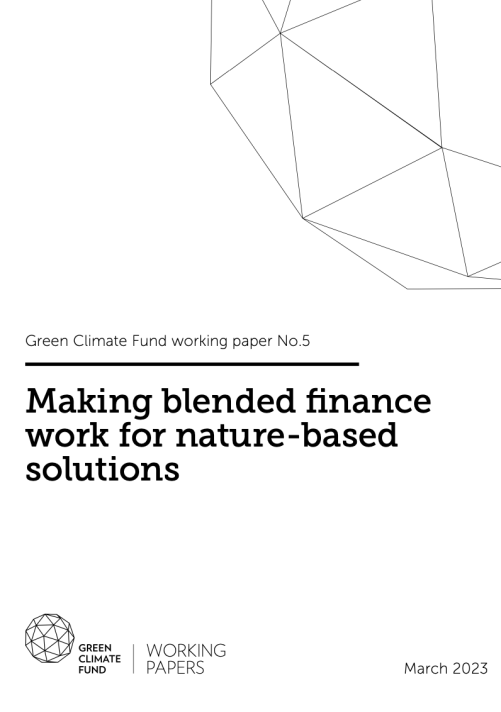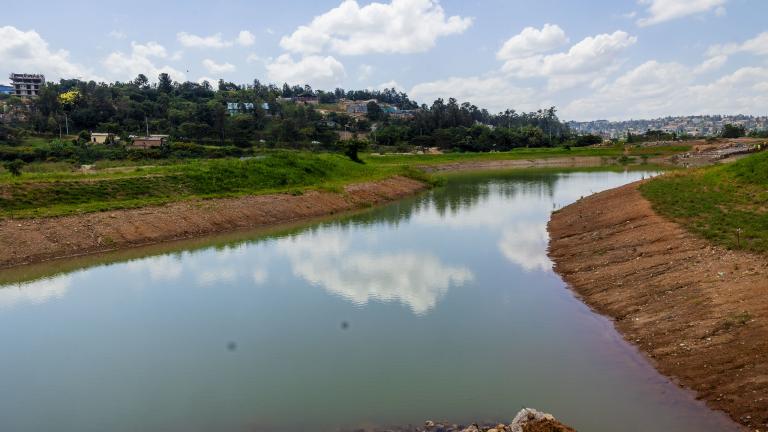
Making blended finance work for nature-based solutions
This report explores innovative financial instruments for climate action and nature conservation, with a focus on Green Climate Fund's catalytic approaches and blending mechanisms for maximum impact.
Within Green Climate Fund’s portfolio of existing projects and pipeline of proposals for approval, the instruments mentioned do not come as standalone items but as part of larger financial systems and reforms which are tailored to specific needs and to achieve maximum impact. This paper describes the experiences of GCF and its partners in designing examples of these and other blended finance mechanisms and concludes with two messages. First, while these instruments can individually be perceived as standalone tools, they are most effective when combined and sequenced appropriately as part of a programmatic approach. Secondly, it is the needs of the beneficiaries capable of achieving an impact, whether in terms of climate or biodiversity or preferably both, which should determine the structure and composition of financial mechanisms rather than the other way around.

UNEA-7 Cities and Regions Summit
Hosted in the lead-up to UNEA-7, this Summit will unite subnational leaders to strengthen collaboration and amplify the importance of cities.

UrbanShift Annual Report 2024-2025
UrbanShift's final Annual Report spans an impactful year of over 30 events and major progress across our network of 23 cities.

Breathing New Life into 5 Kigali Wetlands to Enhance Climate Resilience and Quality of Life
These formerly degraded sites will soon welcome visitors for recreational and educational opportunities—while alleviating flood challenges for the city.

MULTILEVEL GOVERNANCE FOR INTEGRATED URBAN PLANNING
This report outlines key learnings and insights from UrbanShift's Multi-Level Governance Dialogues.
